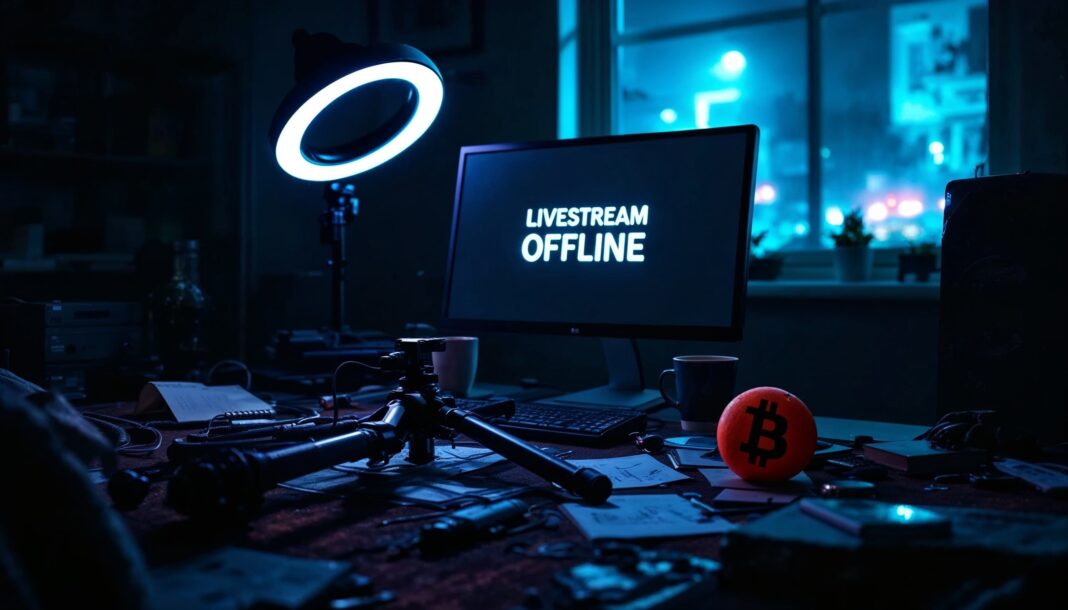Podcast Discussion: Deep Dive Into This Article.
Ben Armstrong, better known in the cryptocurrency space as “BitBoy”, was arrested on March 25, 2025, in Florida, adding yet another chapter to the increasingly turbulent saga of one of crypto’s most divisive personalities. Once a dominant YouTube presence with millions of followers, Armstrong’s recent downfall has involved lawsuits, public feuds, platform bans, and now a fugitive charge.
The arrest comes just months after Armstrong attempted to reclaim his image and online presence following prior controversies—efforts now overshadowed by a growing list of legal challenges.
The Arrest: What Happened?
Armstrong was detained by the Volusia County Division of Corrections at around 7:18 p.m. local time. According to public records, he was booked as a fugitive from justice, with the charge linked to an outstanding warrant issued in Georgia.
Interestingly, Armstrong himself had already disclosed the warrant via social media days earlier, claiming that it stemmed from emails he sent to a judge in Georgia, where he was representing himself in ongoing legal proceedings. Specifically, he referenced Cobb County Superior Court Judge Kimberly Childs, suggesting that his messages had prompted her to delete her social media accounts—a sign, he implied, of political pressure or misconduct.
While Armstrong did not elaborate on the content of the messages, the implication was clear: he believed he was being unfairly targeted by the legal system due to his prominence in the crypto space.
BitBoy’s Troubled Timeline: A Pattern of Legal Drama
This is not the first time Armstrong has made headlines for legal issues. In fact, his recent arrest is just the latest twist in a long and winding story involving lawsuits, asset disputes, and public spectacle.
- In September 2023, Armstrong was arrested during a livestream outside the home of a former business associate, alleging the individual had stolen his Lamborghini. The incident went viral, drawing criticism and ridicule for its chaotic nature.
- In March 2023, he was named in a class-action lawsuit that claimed he promoted Binance’s unregistered securities without proper disclosure.
- By August 2024, Armstrong and co-defendant NBA star Jimmy Butler settled the lawsuit for $340,000, avoiding admission of guilt.
- During this same time, Armstrong’s YouTube presence was diminished, and his once-massive following began to fracture amid accusations of unethical promotions, misleading investment advice, and personal instability.
Armstrong has consistently claimed that he is being targeted for speaking truth in the crypto world, but critics argue his behavior reflects a lack of accountability and professional conduct.
A Community Divided
The news of Armstrong’s arrest has once again divided the crypto community.
- Supporters argue that Armstrong has been unfairly demonized and is the victim of a broader crackdown on independent voices in crypto media.
- Critics contend that Armstrong has long blurred the lines between entertainment and financial advice, pushing risky investments, and stoking controversy to boost engagement—at the expense of transparency and trust.
As influencers gain more sway in crypto circles, the BitBoy saga has become a cautionary tale: What happens when social media fame, financial advice, and regulatory gray areas collide?
Larger Implications for Crypto Influence and Regulation
Armstrong’s arrest raises larger questions about accountability in the crypto influencer space. While traditional finance is governed by clear regulatory frameworks, the crypto world has, until recently, operated with limited oversight.
Now, with the SEC, DOJ, and state-level agencies stepping up enforcement, influencers and promoters are finding themselves under the microscope. Armstrong is far from the only personality facing scrutiny—but his visibility has made him a focal point for these shifting tides.
Expectations are growing that influencers will soon be held to the same standards as traditional financial advisors, especially when promoting platforms, tokens, or exchanges.
What Happens Next?
As of now, details about Armstrong’s court proceedings are still emerging. It’s unclear how long he will remain in custody, whether extradition to Georgia will proceed quickly, or if new charges could arise as part of a broader investigation.
One thing is clear: the days of untouchable crypto influencers may be coming to an end.
Conclusion
Ben “BitBoy” Armstrong’s arrest may not come as a surprise to those who’ve followed his volatile career, but it signals something deeper: a shift in how crypto personalities are perceived—and policed. Whether you see him as a provocateur, a pioneer, or a pariah, Armstrong’s downfall illustrates that even the biggest voices in crypto are not immune to consequences.
As the industry continues to mature, the spotlight is now not just on what influencers say, but on how they say it—and what laws they may be breaking in the process.
This article reflects the opinions of the publisher based on available information at the time of writing. It is not intended to provide financial advice, and it does not necessarily represent the views of the news site or its affiliates. Readers are encouraged to conduct further research or consult with a financial advisor before making any investment decisions.



